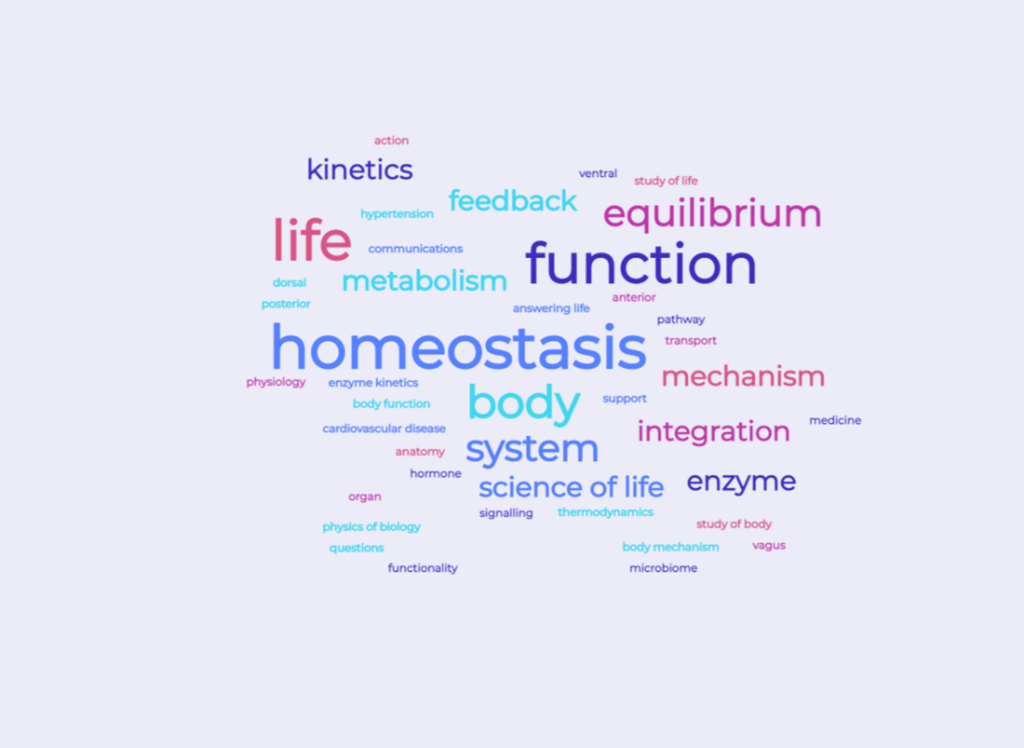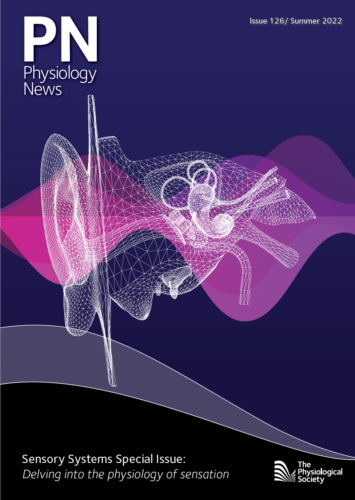
Physiology News Magazine
Chief Executive’s View:
Setting new ambitions for The Society and strengthening our community
News and Views
Chief Executive’s View:
Setting new ambitions for The Society and strengthening our community
News and Views

https://doi.org/10.36866/pn.126.7
Dariel Burdass
Chief Executive, The Physiological Society
One of my favourite parts of working for The Physiological Society is meeting our members who are actively engaged in a wide range of aspects of physiology, including discovery and translational physiology, clinical physiology, exercise physiology, nutritional physiology and comparative physiology. So I was particularly delighted to be able to attend our first in-person conference since the COVID-19 pandemic – The Biomedical Basis of Elite Performance at the University of Nottingham, UK, alongside our Member Roadshow, which celebrated physiology in Nottingham.
During the Member Roadshow we heard from Dr Angus Brown (University of Nottingham, UK) who gave a fascinating talk on The Hodgkin and Huxley papers: still inspiring after all these years. This was followed by three inspiring talks from early career researchers, Dr Matthew Brook, Esther Wainwright and Dr Jyoti Agrawal from the University of Nottingham, each elucidating thought-provoking questions from the audience. This was followed by a reception, which created a great networking opportunity – chances to catch up with old friends and make new ones too.
We recognise that a key element of science research is building collaborations. With physiology becoming less obvious as a distinct discipline within many institutions, alongside researchers who are physiologists not recognising themselves as such, we need to work to change this. We therefore recognise the importance of us getting back on the road to re-engage with our members in their institutions – to build our community through developing new connections and networking opportunities at a local level. There will be further Roadshow events that celebrate physiology during 2022 and 2023. I look forward to meeting many of our members and future members at these events.
As well as working more locally we also recognise the role that we play internationally and with travel restrictions lifting we were really pleased to be able to attend Experimental Biology 2022 held in Philadelphia, US. While at the event we had a busy few days, meeting with the senior leadership of the American Physiological Society (APS) to explore areas of synergy and potential collaborations as well as meeting physiologists on the stand and at their posters. Alongside this we also sponsored a symposium on Causes and Consequences of Sympathoexcitation Across theLifespan: Physiological or Pathological? and co-sponsored a symposium with the APS on Physiological Consequences of Obesity During Pregnancy for Mother and Child.
The highlight of the conference for me was being able to attend the Nobel Prize Award Lecture on Grid Cells and Neural Coding of Space given by Professor Edvard Moser from the Norwegian University of Science and Technology, Trondheim, Norway.
While at the event we asked the physiology community who came by our stand two questions:
What does physiology mean to you, in three words? The word cloud below is a visual representation of the frequently used words. What is the most important scientific question that physiology can help answer and why?
At the end of the conference a competition winner was drawn and the winner was: Cole Jensen from the Mayo Clinic Cell and Regenerative Physiology Laboratory, Minnesota, US.
He wrote that the most important scientific question that physiology can help answer is “How do you treat heart failure with preserved ejection fraction (HFPEF), a common cause of hospitalisation and mortality?” He considers it is important because there are currently very few treatment options. We will be speaking to Cole Jensen about this further, which will be appearing on our blog in the near future. During 2022, The Physiological Society will need to replace its existing strategy, which has served us well for the past five years but will soon expire.

As we look to develop our next three-year strategy we are in a really strong place to build on these foundations and think ambitiously about where our Society goes next.
Our vision for The Society is to increase the visibility of physiology through an inclusive approach so that we are sustainable for the future. Over the coming months Trustees, with the Senior Management Team, will be spending time on developing The Society’s new strategy, which will determine where and how we should focus our resources and what The Society’s USP is. The plan will demonstrate how we will support physiology while providing that sense of community for members and a strong voice for our discipline through our publications, policy work, and conferences programme.
The Society’s publishing plays a significant role in our mission through the dissemination of cutting-edge research. We want to keep the Society’s journals at the forefront of scientific publishing, and we are therefore working with a consultancy firm who is conducting a strategic assessment of our journals programme. The aim of this assessment is to ensure that we have a publication strategy for today’s market dynamics.
Our three journals lead the discipline, promoting best practice and pushing the boundaries of scientific endeavour and we would like to strongly encourage our members and the wider community to consider submitting their next article to one of our journals. We use the surplus from our international publishing operation to support our community of physiologists, advance physiology and increase the influence of The Society with the public, policymakers, and other stakeholders.
The Society is a membership organisation. As always, please call me, email me, invite me to come to your lab, and let me know what we do well, where we could do better, what we might stop doing and what we could do more of.
